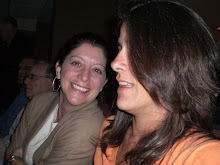Behaviorism, defined by its' Master, B.F. Skinner, “The objection,” wrote Skinner, “to inner states is not that they do not exist, but that they are not relevant in a functional analysis” (Skinner 1953, p. 35). In other words, Skinner did not agree that humans think on their own. Behaviorism contends that behavior is molded by the environment, not the controlled by the mind (2007).
Kerr (2007), made a good point in arguing for behaviorism when he stated that actions are repeated when followed by a reward. Most could agree, right? I personally thinks this works bests for small children, okay, maybe adolescents as well. It may work for teens in its' other form, which is negative reinforcement for unwanted behavior. As an adult learning, I would bicker that this is not the way it works for me. Well, and maybe it is unbeknownst to me. I found another theory I like better which better describes how I learn and how I model my teaching to others. It is the Social Learning Theory by Bandura which includes the following:
(1) Attention, including modeled events (distinctiveness, affective valence, complexity, prevalence, functional value) and observer characteristics (sensory capacities, arousal level, perceptual set, past reinforcement)
(2) Retention, including symbolic coding, cognitive organization, symbolic rehearsal, motor rehearsal
(3) Motor Reproduction, including physical capabilities, self-observation of reproduction, accuracy of feedback
(4) Motivation, including external, vicarious and self reinforcement (2009).
This certainly seems more feasible to me as an ideal learning theory to be applied to many learners.
Thoughts?
http://billkerr2.blogspot.com/2007/01/isms-as-filter-not-blinker.html
http://karlkapp.blogspot.com/2007/01/out-and-about-discussion-on-educational.html
Skinner, B.F. (1953). Science and Human Behavior. New York: Macmillan.
Stanford encyclopedia of philosophy. (2007). Retrieved from http://plato.stanford.edu/entries/behaviorism/
TIP: Theories. Social learning theory. (2009). Retrieved from http://tip.psychology.org/bandura.html

Bandura’s (1977) Social Learning Theory explored human behavior in the context of the reciprocal interaction between individual cognition and the external environment. Therefore, I think that Bandura understood and accepted the tendency for humans to respond to positive reinforcement, but he attributed humans with the cognitive power to choose to respond or not, rather than to respond in knee-jerk fashion. Bandura contended that humans cannot be conditioned in the same way as animals because humans have the ability to think symbolically and consciously decide what actions to take.
ReplyDeleteI like analogies and I don’t think there is anything unscholarly about ice cream....in fact, I think that ice cream is a relevant factor in stress reduction and self-reward for people working on KAMs and dissertations! I also agree that no single theory can be proven as the mother of all theories, to be used to the exclusion of all others. However, I disagree with the concept of learning theories being merely personal preferences like ice cream flavors. The reason I feel this way is because I think we need to consider the best theory for learners and for the learning task at hand, not what is most comfortable for ourselves. For example, I know that I’m a predominantly visual learner, but many of my students may be stronger with auditory or kinesthetic modalities. In order to best meet all my students’ needs, I must balance my curriculum and teaching methods with visual, auditory, and kinesthetic activities.
We only keep the ice cream flavors we like in the freezer, but I think we need to have all the learning theories and possible strategies available for us to use when they best meet the needs of our students. This is why I prefer the analogy of learning theories as tools in a toolbox.
Now I suddenly have the urge to ea
t a DQ Blizzard and build a birdhouse! :-D
Bandura, A. (1977). Social learning theory. Englewood Cliffs, NJ: Prentice-Hall.
Lisa Rodriguez